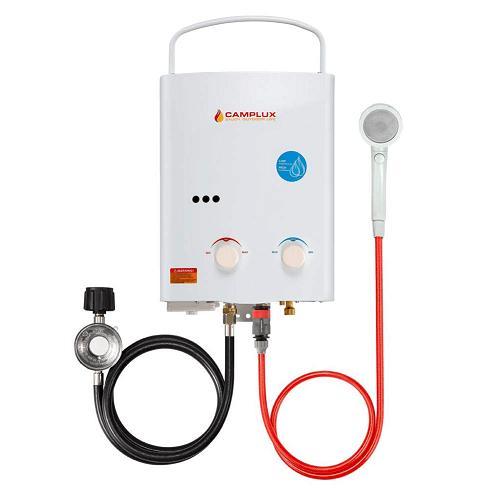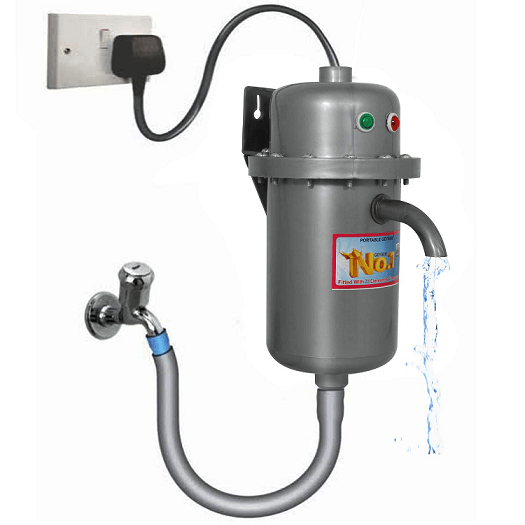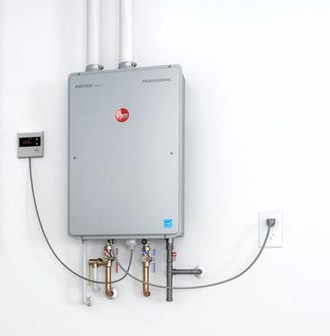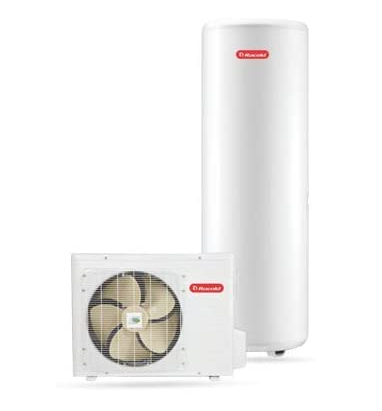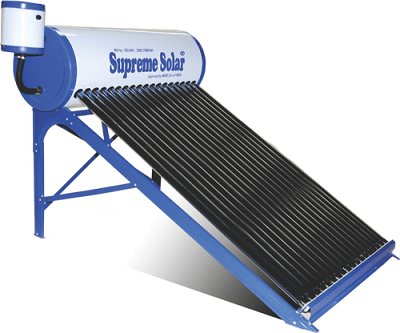There could be times when you go to take your daily shower by turning on the hot tap, and all you get is cold water. There are various factors that determine how fast hot water can come out of your hot tap.
Technically speaking, the lower the recovery time of your water heater, the faster it takes for hot water to come back. Recovery time is the time your water heater takes to reheat the entire water heater tank. In this article, we will look at the factors influencing hot water coming back time and what you can do to get hot water out faster.
Outline
ToggleFactors Determining Recovery Time Of Your Water Heater
- Water Heater Tank Size – The larger the water heater tank size, the more time the heater will take to heat up the entire water in it, and hence, the more time it will take to release hot water.
- First Hour Rating – The first-hour rating indicates how many gallons of water your water heater can heat up in an hour. Therefore, the higher the first-hour rating, the shorter will be the time your water heater takes to release hot water.
- Temperature Difference – Users can set a particular temperature at which they want hot water. The temperature difference refers to the difference between the temperature of the incoming water or water in the tank and the temperature the users want. Naturally, the higher the temperature difference, the longer it will take the heater to heat up water.
- Fuel Type – Water heater runs on a fuel which could be electricity, gas, and even solar energy. It has been found that an electric heater takes twice the time to heat a given volume of water as a gas heater. We will discuss water heater types and their recovery time in the next section for better understanding.
Apart from these, the age of the water heater, the diameter of the water supply pipe, the distance from the water heater are some minor factors that can influence the recovery time.
Types Of Water Heater and Their Recovery Time
1. Gas Heater
A gas heater is the most commonly used in commercial and industrial places. This is because the recovery time of a gas heater is the lowest, and hence, it is the most efficient water heater with a tank. It heats water with a gas burner sitting at the bottom of the water tank. For a 40-gallon water tank, it takes 30 to 40 minutes. For an 80-gallon tank, it takes around an hour to release hot water.
2. Electric Heater
An electric heater is the most commonly used water heater at home. An electric heater takes nearly twice the time to heat up a given volume of water in comparison to a gas heater. Therefore, it is a less efficient water heater. Ideally speaking, an electric water heater takes around 60 to 80 minutes to release hot water with a tank capacity of 40-gallon. If the tank capacity is 80-gallon, the recovery time can be more than two hours.
3. Tankless Heater
A tankless heater is the most convenient water heater available. This is because there is a minimum requirement for installation, and you do not need a water tank taking up space. Instead, you can get an unlimited supply of hot water. Moreover, there is literally no waiting time with a tankless heater, thanks to modern technology. Therefore, we can safely say that a tankless heater is the best water heater with practically no waiting time and unlimited hot water supply.
4. Heat Pump Water Heaters
A heat pump water heater is also called a hybrid water heater. It is a modified version of an electric heater with better settings for energy conservation. However, the recovery time of a heat pump water heater is significantly higher which is around two hours on a regular setting. But there is a high-demand setting available which reduces the waiting time significantly and brings it down to 60 to 80 minutes.
5. Solar Heater
A solar heater is a modern heater with minimum expenditure required for heating water. The time it takes to heat up water is slightly more than an electric water heater. Therefore, for a 40-gallon water tank, a solar heater can take up to one and a half hours. The only issue is that it may not heat water when the weather has been gloomy for some days.
5 Ways To Get Your Hot Water Back
Here are a few things you can do when you run out of hot water.
1. Wait For Refilling
The usual thing to do when you run out of hot water is to wait for the refilling of the water tank and the water to get heated up. This will take some time depending on heater type and tank size. If the waiting time is significantly higher than usual, it is a sign of an underlying issue with your water heater. However, we should wait for a few more days and then call a plumber to fix the issue.
2. Consider Water Heater Size
If you are running out of hot water frequently, you should consider the size of your water heater tank and think about replacing it with a bigger capacity water heater. Your existing water heater is not able to meet your everyday requirements, and hence, it is running out of hot water, and the waiting time is always going to be high.
3. Check for Electric or Gas Issue
There are times when there can be some obstacle in the water heater that is preventing electricity supply or gas supply to heat up water. If the tank is filling but not warming up, you have to get a plumber and get your water heater checked for any issue. If you have a gas heater and if you smell gas leaking, call a plumber immediately, and you can move your family members to a distant room.
4. Check Inlet Water Temperature
When the inlet water temperature is low, the water heater takes relatively more time to heat up water. This is because if the inlet water is colder than usual, it is natural for the heater to take time to heat up water to a certain temperature. Therefore, it is dependent on the weather condition in your area, and in winter, it is usual for your water heater to take more time to release hot water.
5. Look For Sediment Buildup
It is very common for sediment to build up inside the water heater depending on the water quality in your area. If you have hard water in your area, sediment buildup is going to be high. That is when you have to clean the interior of your water heater tank more frequently so that the sediment does not hamper the recovery time of the water heater. You can also install an external water softener so that sediment buildup is not frequent.
Scenario 1 – If your Heating Unit Suddenly Takes Longer to Reheat
Reason – It is most likely due to sediment buildup. Depending on the water quality in your area, there can be heavy mineral deposits on the inside walls of the water heater. If there is sediment buildup, you can hear hissing and popping noise when the heater is on. This reduces the heater’s ability to heat water up. Other reasons could be a malfunctioning thermostat or a broken dip tube.
What To Do – Get a professional to check on your water heater from the inside to confirm if the problem is sediment buildup or not. If it is sediment buildup, he will use the apt chemical to remove sediment completely from the tank. Otherwise, your water heater will need repairing of the damaged parts.
Scenario 2 – If Your Heating Unit Always Require a Longer Recovery Time
Reason – It is most likely that the water heater you have is too small to cater to your family’s needs. This is because you are drawing an excessive amount of hot water from the tank every time in comparison to the size of the tank. The water tank gets filled with a huge amount of cold water every time you are drawing hot water away. Naturally, the water heater has to spend a long time to heat up the cold water.
What To Do – You can get a professional to help you understand if the water heater is small for your needs. If so, get a recommendation about what size is perfect for your family. Otherwise, there could be some issues with different parts of the water heater, and you need the professional to check them out.
Conclusion:
Different water heaters take different amounts of time to release hot water. Apart from the type of water heater, the waiting time also depends on various external factors which we have listed properly for your understanding. Besides, there could be some mechanical issue with your water heater for which you need to get a professional plumber to inspect and suggest a solution.

